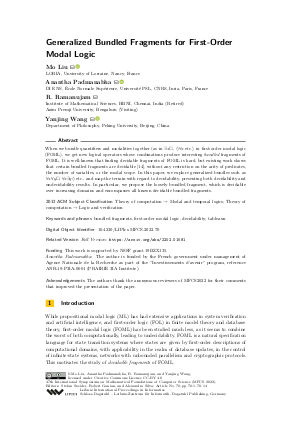LIPIcs.MFCS.2022.70.pdf
- Filesize: 0.83 MB
- 14 pages

 Creative Commons Attribution 4.0 International license
Creative Commons Attribution 4.0 International license





Feedback for Dagstuhl Publishing